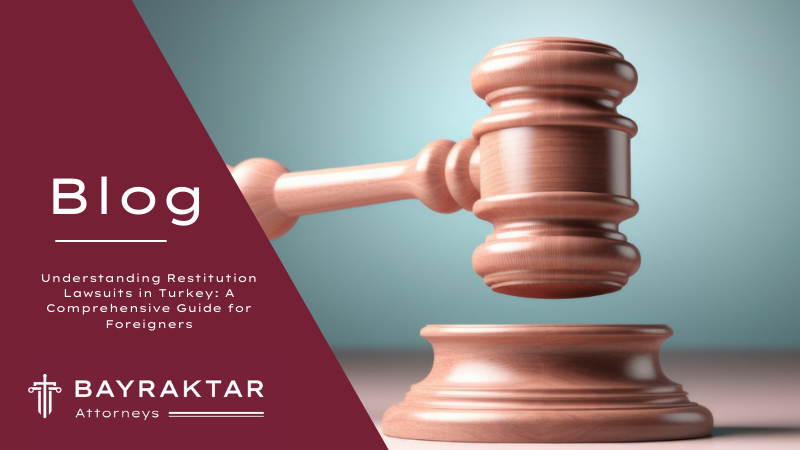
In the myriad of legal proceedings, the concept of restitution lawsuits, or “istirdat davası nedir” as it’s known in Turkish, stands out as a crucial remedy for those seeking to reclaim their rights regarding property or assets in Turkey.
Navigating the legal landscape can be daunting, particularly for foreigners who may be unfamiliar with the Turkish legal system.
This guide aims to demystify the process and provide a clear understanding of how restitution lawsuits function in Turkey, offering invaluable insights to non-Turkish residents and investors.
Related: How to Deal With An Alimony Increase Lawsuit in Turkey
What is “Istirdat Davası Nedir“?
The term “istirdat davası nedir” literally translates to “restitution lawsuit” and refers to the legal action taken to recover a right or property that has been unjustly taken or held by another person.
Restitution lawsuits are a common legal remedy within the Turkish legal framework, providing individuals the means to assert their property rights and seek justice in cases of wrongful possession or ownership disputes.
These lawsuits can pertain to movable property, immovable property, or any other rights that are subject to restitution under Turkish law.
The Legal Basis and Procedure
In Turkey, restitution claims are governed by the Turkish Code of Obligations and Civil Code.
When initiating a restitution lawsuit, the claimant must prove their ownership or right to the property in question and demonstrate that the defendant currently possesses it without legal justification.
Foreigners must be aware that there are specific procedures and documentation required, such as title deeds, contracts, or other official records proving ownership.
Legal representation is highly recommended for navigating through the court proceedings, which will involve submission of evidence, witness testimonies, and possibly expert hearings.
Statute of Limitations for Filing a Claim
One critical aspect to keep in mind is the statute of limitations, which can vary depending on the type of property involved.
In general, the statute of limitations for restitution lawsuits in Turkey is ten years; however, this can be reduced to a one-year timeframe under certain conditions, such as good faith acquisition.
It’s essential for foreign claimants to act in a timely manner to avoid losing their right to pursue a claim due to the expiration of the legal timeframe to initiate legal action.
Navigating Language and Legal Barriers
Foreigners who are not proficient in Turkish must address the language barrier. All official proceedings and documentation will be in Turkish, so it’s beneficial to enlist the services of a bilingual lawyer who can communicate effectively and ensure that all submitted documents are accurately translated and compliant with Turkish law.
Equipped with this knowledge and the right legal counsel, foreigners can confidently approach restitution lawsuits in Turkey and pursue the return of their property and rights with the full backing of the Turkish legal system.
For those dealing with istirdat davası nedir and seeking comprehensive legal assistance, finding an adept law firm like Bayraktar Attorneys, with expertise in Turkish law and the particular needs of foreign clients, can make all the difference in successfully navigating restitution lawsuits in Turkey.







